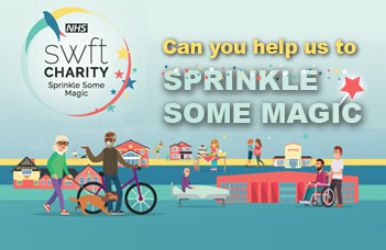We see children:
- from birth to 18 years of age (19 years if they attend a Special School)
- who have complex needs which affect their eating and drinking
- who have structural problems which affect their eating and drinking
- who have developmental difficulties which affect their eating and drinking
- whose medical problems or past medical problems affect their willingness to eat
- who have a GP in Warwickshire
- As Inpatients at Special Care Baby Unit (SCBU) and MacGregor Children’s Ward, Warwick Hospital or SCBU at George Eliot Hospital, who have eating, drinking, or swallowing difficulties
Unfortunately, we don’t see
- We do not currently have a service to support children with purely sensory based feeding difficulties i.e., children who have age-appropriate chewing and swallowing skills but are selective about what they eat and drink particularly sensitivities associated with Autism. However, please see ‘useful websites’ in the section below for information you might find helpful.
- We do not see children about general weaning advice. However, please contact your Health Visitor if you would like support with this.







